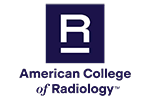Image/Video Gallery
Your Radiologist Explains Cardiac (Heart) Screening.
Welcome to RadiologyInfo.org
Hi, I’m Elliot Fishman, a radiologist at Johns Hopkins Hospital in Baltimore, Maryland. In this short video I’d like to describe for you cardiac – or heart – screening.
Heart disease is a leading cause of death in the United States and a major cause of disability. Coronary artery disease – often referred to as C-A-D – is the most common form of heart disease and a major cause of heart attacks.
Coronary artery disease occurs when a build-up of fat, cholesterol or other substances – called plaque – collects and forms along the walls of the heart’s arteries, it’s a condition commonly referred to as atherosclerosis.
Cardiac screening exams are performed to find heart disease before symptoms begin. If your doctor prescribes cardiac screening, you may be evaluated also to measure cholesterol, blood glucose, C-reactive protein, and blood pressure. Depending on initial test results and your risk factors for coronary artery disease, you may also undergo an imaging test. Some of the more common tests are:
- Echocardiography, which uses ultrasound to create moving pictures of the heart.
- Cardiac CT for Calcium Scoring or coronary artery calcium scoring, which measures the amount of calcium in the coronary arteries and may be an important indicator of the presence of plaque.
- Coronary CT angiography or CTA, which uses computed tomography or CT scanning to determine the location and extent of plaque buildup and look for any areas of narrowing.
- Myocardial perfusion imaging or MPI (also called a nuclear stress test), uses a small amount of radioactive material and a special camera to determine the effect of physical stress on the flow of blood through the coronary arteries to the heart muscle.
- And finally, coronary catheter angiography, which takes pictures of the blood flow through the coronary arteries and allows the doctor to see any blockage or narrowing of the coronary arteries.
It’s important that you talk to your doctor about which test is right for you. You can find more details – including the risks and benefits of each of these studies as well as other information on other imaging exams on RadiologyInfo.org.
Thank you for your time. I hope this information is of value to you.


